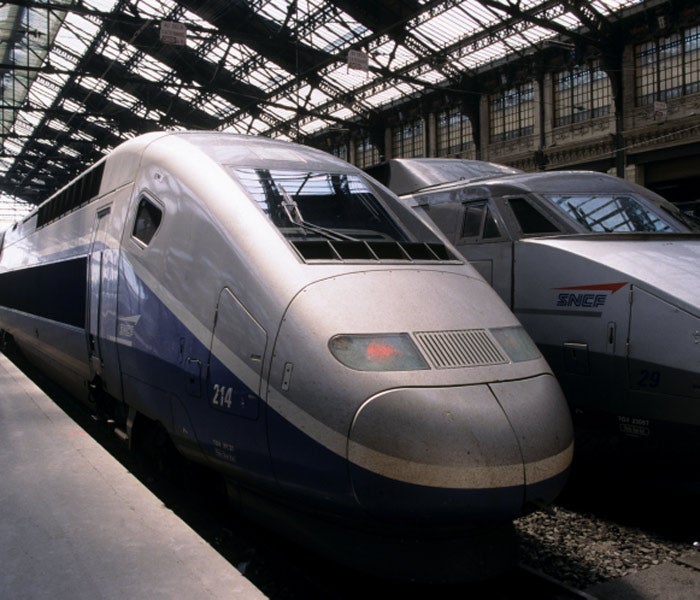Challenge to TGV as Ryanair brings budget air travel to France

Your support helps us to tell the story
From reproductive rights to climate change to Big Tech, The Independent is on the ground when the story is developing. Whether it's investigating the financials of Elon Musk's pro-Trump PAC or producing our latest documentary, 'The A Word', which shines a light on the American women fighting for reproductive rights, we know how important it is to parse out the facts from the messaging.
At such a critical moment in US history, we need reporters on the ground. Your donation allows us to keep sending journalists to speak to both sides of the story.
The Independent is trusted by Americans across the entire political spectrum. And unlike many other quality news outlets, we choose not to lock Americans out of our reporting and analysis with paywalls. We believe quality journalism should be available to everyone, paid for by those who can afford it.
Your support makes all the difference.Ryanair, Europe's most successful low-cost airline, is going nose to nose with Europe's largest and most successful high-speed railway system.
The Irish-based airline announced yesterday that it was starting cheap flights in May from Beauvais airport, 50 miles north-west of Paris, to Marseilles. Ryanair will also try to break into the German domestic market for the first time with flights between Frankfurt and Berlin.
The French internal travel market has proved a difficult hunting ground for cut-price airlines, faced with the dominance of the national carrier, Air France, and, above all, with the success of the TGV – the high-speed rail services run by the state-owned SNCF.
As a proof of the challenge facing Ryanair, the SNCF – entirely coincidentally – revealed yesterday that it had made a record profit last year of €1bn (£788m). For the first time in its 70-year history, the company will pay a dividend, estimated at €130m, to its only shareholder, the French taxpayer.
The SNCF profit is largely due to the success of its network of high-speed express trains, travelling on newer lines at 180 to 200mph and on older lines at up to 100mph. The profit does not take into account the losses of the heavily indebted French equivalent of Network Rail, which own the tracks themselves.
Ryanair said it did not expect to compete, initially, with high-speed trains on the Paris to Marseilles route. The airline expects its customers from Beauvais to come mostly from Normandy and the north of France. From 2 May, Ryanair will run four flights a week to and from Marignane airport, west of Marseilles, rising eventually to a return flight each day. There will be an opening offer, from today, of seats at €10 one way. The average price will be €25 to €30 and the maximum €250 (all taxes included).
That compares with a standard rail fare from Paris to Marseilles of €104.90 one way. The SNCF also has special offers for advance booking which can bring the price down to €22.
The fastest trains on the 500-mile route take three hours. They leave Paris and Marseille almost hourly. The bus from Paris to Beauvais takes at least one hour and from Marignane to central Marseilles a little less. The flight takes just over an hour.
Ryanair's marketing and sales manager in France, Matthieu Glasson, said the airline expected eventually to carry 40,000 passengers a year between Beauvais and Marseilles. "We have other [French domestic routes] in mind. Our aim is, obviously, to get bigger," he said. "We will have announcements to make for the winter season starting in October."
The only other low-cost airline operating domestic routes in France is easyJet. It mostly avoids direct competition with the TGV, offering flights such as Paris to Nice or Lyons to Bordeaux, which are not yet well served by high-speed rail lines. EasyJet began a cheap Paris Orly-Marseilles service in 2002 but abandoned the route in 2005.
Guillaume Pepy, recently promoted from deputy head of SNCF to president, said the company's finances were in a "better state than at any time in our history".
Join our commenting forum
Join thought-provoking conversations, follow other Independent readers and see their replies
Comments